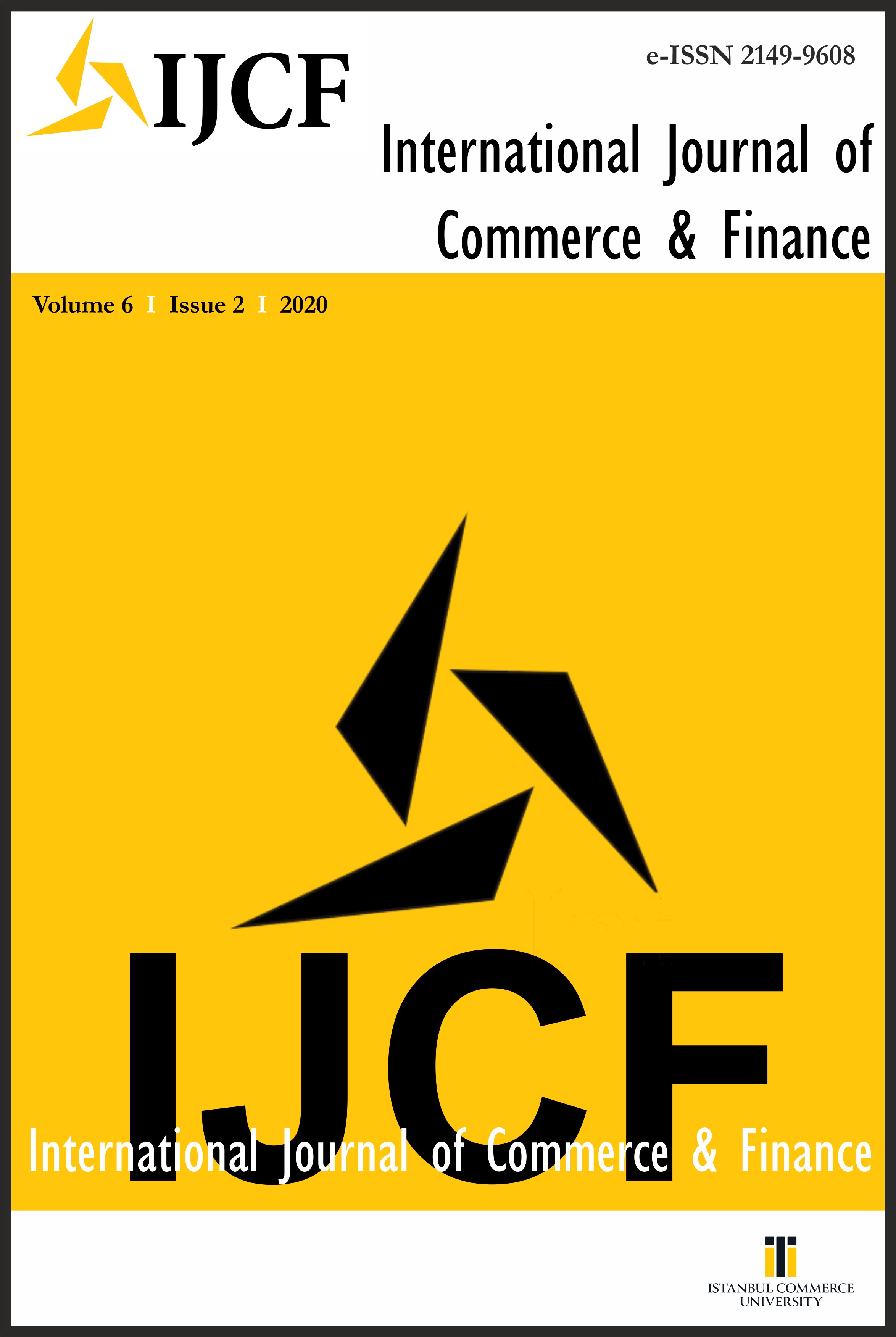Debt Financing and Growth of Quoted Manufacturing Firms in Nigeria
Abstract
The study examined the impact of debt financing on the growth of manufacturing companies in Nigeria within 2011 to 2018. The study employed the ex-post facto research design. Panel regression technique was employed for the analysis, but Hausman test was used determine which model is actually accurate for inference drawing among fixed and random models. The findings based on the random effect revealed that LTD (Long-term debt) has a negative significant effect on SG (Sales growth) at (β= -3.37, P<0.05), STD (Short-term debt) has a positive significant effect on SG (Sales growth) at (β= -0.08, P<0.05) and ROE (Return on equity) has a negative insignificant effect on SG (Sales growth) at (β= -0.24, P>0.05). The study recommended that firm can mix the periodic debt components of short-term and long-term debt in its capital structure, because of the benefit of tax shield inherent in the postulation of the static-trade off theory, but must also make the sure interest payment on debt does not affect the profitability status and growth of the company. Business enterprises can use debt, as it offers the potential to increase the volume of their operations and increase the average return on their equity. Few studies have been able to investigate the influence of sales growth on the debt exposure of the manufacturing companies, knowing full well that sales in directly proportional to increase in revenue.
Keyword: Debt Financing; Long-term debt; Short-term debt; Growth; Firms; Nigeria
JEL Classification: G31, G32, C5
Keywords
Full Text:
PDFIndexing and Abstracting Services










Other Sources and Services



License

International Journal of Commerce and Finance is licensed under a Creative Commons Attribution-NonCommercial-4.0 International (CC BY-NC 4.0) License.
Mailing Address
| International Journal of Commerce and Finance Örnektepe Mah. İmrahor Cad. No: 88/2, Beyoğlu 34445 / İSTANBUL, TURKEY E-mail : hersoy@ticaret.edu.tr |



